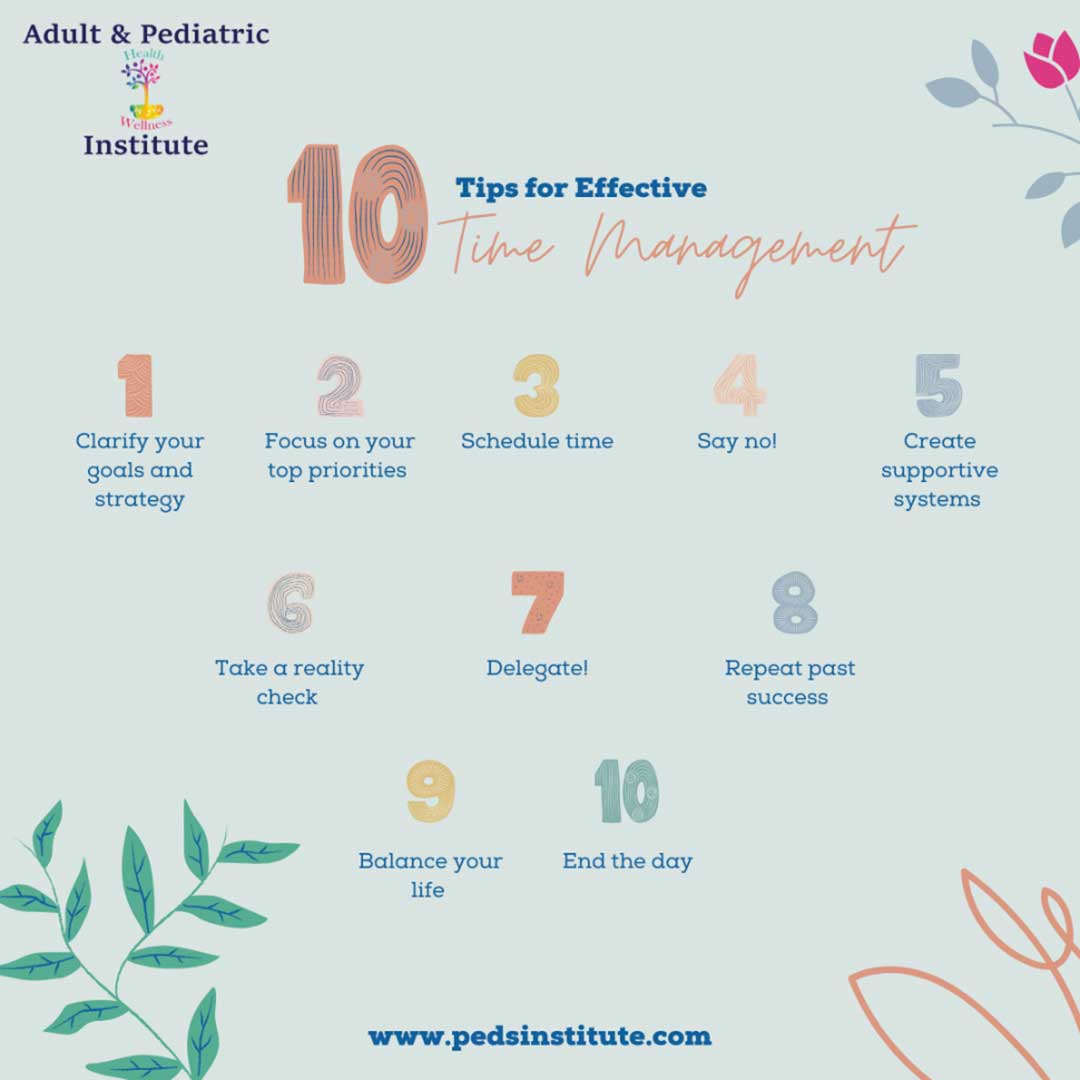
Top 10 Tips for Effective Time Management
Who amongst us doesn’t grapple with the perpetual feeling of not having enough time? I certainly do, often feeling rushed, juggling multiple tasks, and multitasking to the point of exhaustion.
The modern world demands efficiency, and yet, we find ourselves drowning in a sea of responsibilities. Here are 10 simple yet transformative tips for better time management that you can begin using today. If you apply these consistently, I guarantee they will work, transforming your life from chaotic to controlled.
1. Clarify Goals and Strategy
Start by defining your short and long-term goals. Be crystal clear about what you want to achieve. Writing down these goals isn’t just about visualization; it’s about creating a tangible roadmap. Detail what steps are necessary to reach these goals. This clarity will act as your compass, guiding your daily activities towards your ultimate objectives. Remember, without a clear destination, any road will take you there, but it might not be where you want to end up.
2. Prioritize
Prioritization is the cornerstone of productivity. When you focus on what’s most important first, you lay down strong foundations for all your tasks. Master the basics before moving on to more complex projects. By concentrating on essentials, you ensure that your efforts are directed where they will have the most impact. Think of it as building a house; without a solid foundation, the structure won’t stand.
3. Schedule Everything
Literally schedule every aspect of your day. Whether it’s a physical planner, a digital calendar, or an app, ensure your priorities are logged first. Scheduling your day reduces the anxiety associated with time scarcity and keeps your focus sharp. Remember, a well-planned day is a well-executed day. This proactive approach to time management not only organizes your activities but also allocates time for rest and unexpected events.
4. Learn to Say No
One of the hardest skills to master is the art of saying “no.” Before committing to new tasks, always consult your schedule. Guard your time jealously; every “yes” to someone else can be a “no” to your own priorities. Protecting your objectives from diversions is crucial for effective time management. Saying no can be liberating, allowing you to focus on what truly matters.
5. Create Supportive Systems
Efficiency is not just about personal discipline; it’s also about creating an environment that supports your productivity. Implement systems for filing, managing information, and improving communication. These systems reduce the time spent searching for information or dealing with clutter, thereby freeing up more time for productive work. Think of these systems as the scaffolding that supports your daily tasks.
6. Reality Check
Regularly ask yourself if what you are doing aligns with your goals. Are you engaging in activities out of necessity or desire? This reality check helps you stay on course, ensuring that every action you take is a step towards your goal, not a detour. It’s about being honest with yourself about where your time is going.
7. Delegate
The temptation to handle everything yourself is strong, especially if you believe you can do it faster or better. However, delegation is a long-term investment in your time management. By sharing responsibilities, you not only free up your time but also empower others, foster team growth, and develop your leadership skills. Remember, delegation isn’t relinquishing control; it’s about leveraging resources.
8. Repeat Past Successes
Think back to times when you were exceptionally productive, like the days before a vacation. Analyze what made those days so effective. Was it the urgency, the planning, or a particular technique? Try to replicate those conditions. Or, imagine you’re leaving for a trip tomorrow and adjust your day accordingly to maximize productivity. This mental trick can push you to be more efficient.
9. Balance Your Life
Time management isn’t just about work; it’s about life. Schedule time for personal activities, family, friends, health, and fun. A balanced life isn’t just good for your well-being; it also enhances your energy and focus, making your productive hours more effective. Balance is key to sustainability in productivity.
10. End of Day Review
Before you call it a day, jot down what must be done tomorrow and prioritize these tasks. This practice not only prepares you for the next day but also clears your mind for relaxation. You’ll worry less at night, knowing you’re organized for the morning. This nightly ritual ensures you start each day with purpose and direction.
Implementing the top 10 Tips for effective time Management can revolutionize how you approach your daily schedule. Remember, the key to success here is consistency. With regular practice, these strategies will help you manage your time more effectively, leading to a more productive, less stressful life.
For more productivity tips, check out our other articles here. Share your own time management strategies on our social media and let us know which of these tips you’re excited to try!
Tagged care, psychology, therapy
